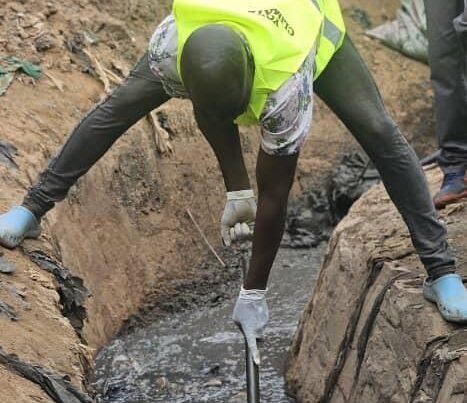Uganda is one of the nations struggling with complexities of economic development and environmental sustainability. Amidst this landscape of challenges and opportunities, a guiding light emerges – the concept of Just Transition. But what does it mean, and how does it shape Uganda’s path towards a more equitable and sustainable future?
Just Transition, a concept in climate negotiations and action, is a term coined by the 1970s North American labour movement refering to the process of shifting from an economy reliant on fossil fuels and other environmentally harmful practices to one that is more sustainable, equitable, and just. It includes a wide range of measures aimed at ensuring that the transition to a low-carbon economy does not disproportionately harm workers, communities, or vulnerable populations.
At the United Nations, Just Transition has gained traction as a key component of global efforts to address climate change and promote social justice. The Paris Agreement, adopted in 2015, explicitly recognizes the importance of Just Transition in the context of climate action, calling on countries to ensure that their climate policies are “informed by assessments of the social, economic, and environmental impacts of climate-related policies.” During COP 28, Just Transition emerged as a central theme as countries deliberated on ways to enhance their climate ambition and implement the goals of the Paris Agreement.
In Uganda, the journey towards Just Transition began with grassroots movements and civil society organizations advocating for a more sustainable and equitable approach to development. Over the years, there have been some notable successes, including initiatives to promote renewable energy, improve energy efficiency, and protect natural resources.
However, progress towards Just Transition in Uganda has been uneven, with significant challenges and setbacks along the way. The government’s embrace of large-scale infrastructure projects, such as the East African Crude Oil Pipeline (EACOP), the Kingfisher, and the Tilenga projects, has raised concerns about the environmental and social impacts of such fossil fuel ventures.
Despite these challenges, the need for Just Transition in Uganda has never been more urgent. In the face of a changing climate, characterized by rising temperatures, unpredictable weather patterns, and ecological degradation, the need to transition to a more sustainable and equitable economy is clear.
From the halls of international climate negotiations to the streets of grassroots movements, there is a growing recognition that the transition to a low-carbon economy must be guided by principles of justice, equity, and inclusion yet this doesn’t seem like it is the case in Uganda.
As Uganda navigates the complexities of Just Transition, there is a need for bold and visionary leadership, coupled with meaningful engagement with affected communities and stakeholders. The time for action is now, as we strive to build a future where all Ugandans can thrive in harmony with nature, and where the promise of Just Transition becomes a reality for generations to come.
As Green Foster Action, we envision a Uganda where development is guided by the principle of Just Transition. It is necessary to address investment and technology gaps within the reality of Uganda’s macroeconomic constraints, but a just and effective transition will require an even greater emphasis on social transformation and safety nets, in a framework that leaves and pushes no one behind, and works through and across value chains.
As we paddle through the murky waters of Uganda’s Just Transition, the progress is on the right side. Even though the state claims to be working on decarbonating the different fossil projects to curb carbon emissions using technology, the reality shows that this is more of a fallacy than a reality. As more civil society organisations, political leaders and activists come on board, we need to double our efforts in advocating for Just Transition. It is important to reach out to leaders, educate them, confront them and make them realize the ambiguity that lies in implementing fossil projects that do not align with the global low-carbon transition and yet not follow the principles of Just Transition.



